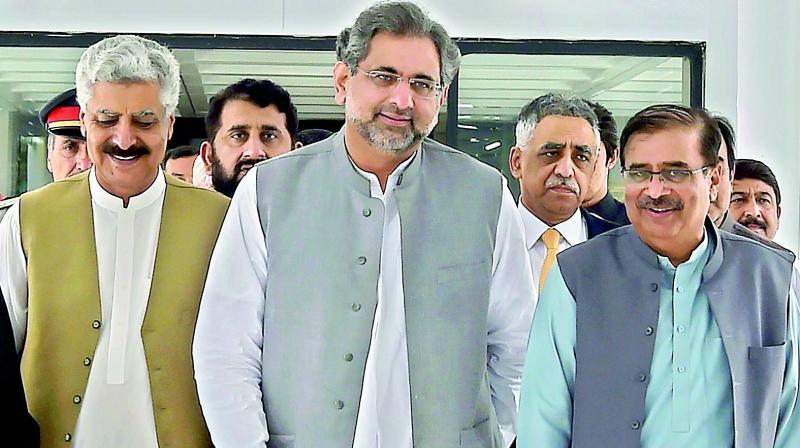Islamabad: The visit of a top US official overseeing South Asian affairs to Pakistan has been postponed, the Foreign Office said on Sunday, amid indications that Islamabad was still evolving a response to Trump administration's new Afghan strategy.
Alice Wells, the acting assistant secretary of state for South and Central Asian Affairs and acting special representative for Afghanistan and Pakistan, was scheduled to visit Islamabad next week, but the visit has been put off by the Pakistan government "until a mutually convenient time."
The Foreign Office did not give any reason for postponing the visit.
But government sources said Islamabad was still evolving a response to the US accusations that Pakistan was providing safe havens to militants and prolonging the US 16-year Afghan war.
It would be "premature" to interact with the senior US State Department official at this time, they added.
Wells's visit would have been the first by any US official after US President Donald Trump unveiled the new policy for Afghanistan and the larger South Asian region.
The Pakistan government has tasked Foreign Minister Khawaja Asif to garner support from friendly countries. He is expected to visit China, Russia and Turkey next week in the first phase of the country’s regional diplomatic outreach.
Pakistan Prime Minister Shahid Khaqan Abbasi on Wednesday visited Saudi Arabia and held talks with Crown Prince Mohammad bin Salman.
News reports in Pakistan said he was accompanied by Asif on the trip and discussed the US new Afghan strategy there.
The Pakistan-US ties received a fresh jolt yesterday when Gen John Nicholson, the top US commander in Afghanistan, claimed in a TV interview that his country was aware of Afghan Taliban leadership’s presence in Peshawar and Quetta.
Pakistan has repeatedly denied it hosts the Taliban.
Today, Asif said the Afghan Taliban were the US and Afghanistan’s problem, not Pakistan’s.
He told reporters in Sialkot that Pakistan has been hosting the Afghan refugees for decades and the US "should help to repatriate them back to Afghanistan if they do not trust us."


